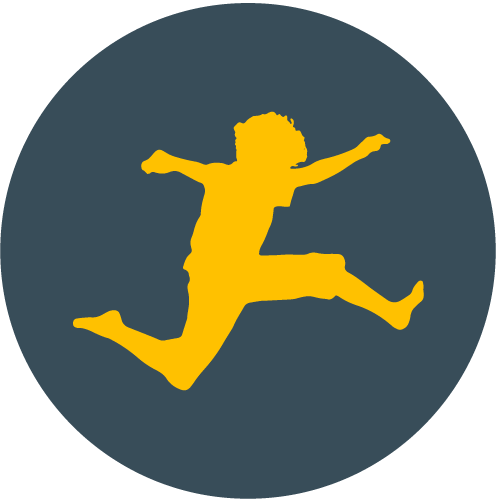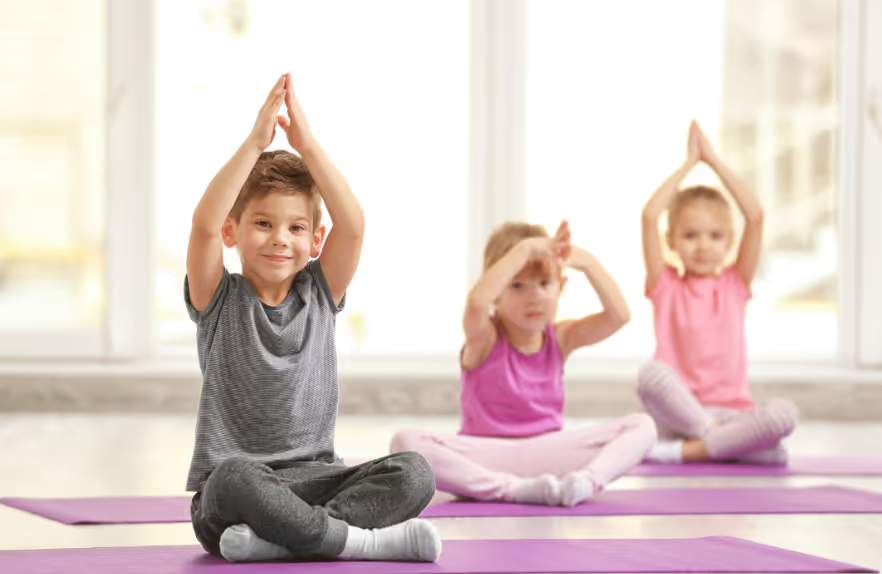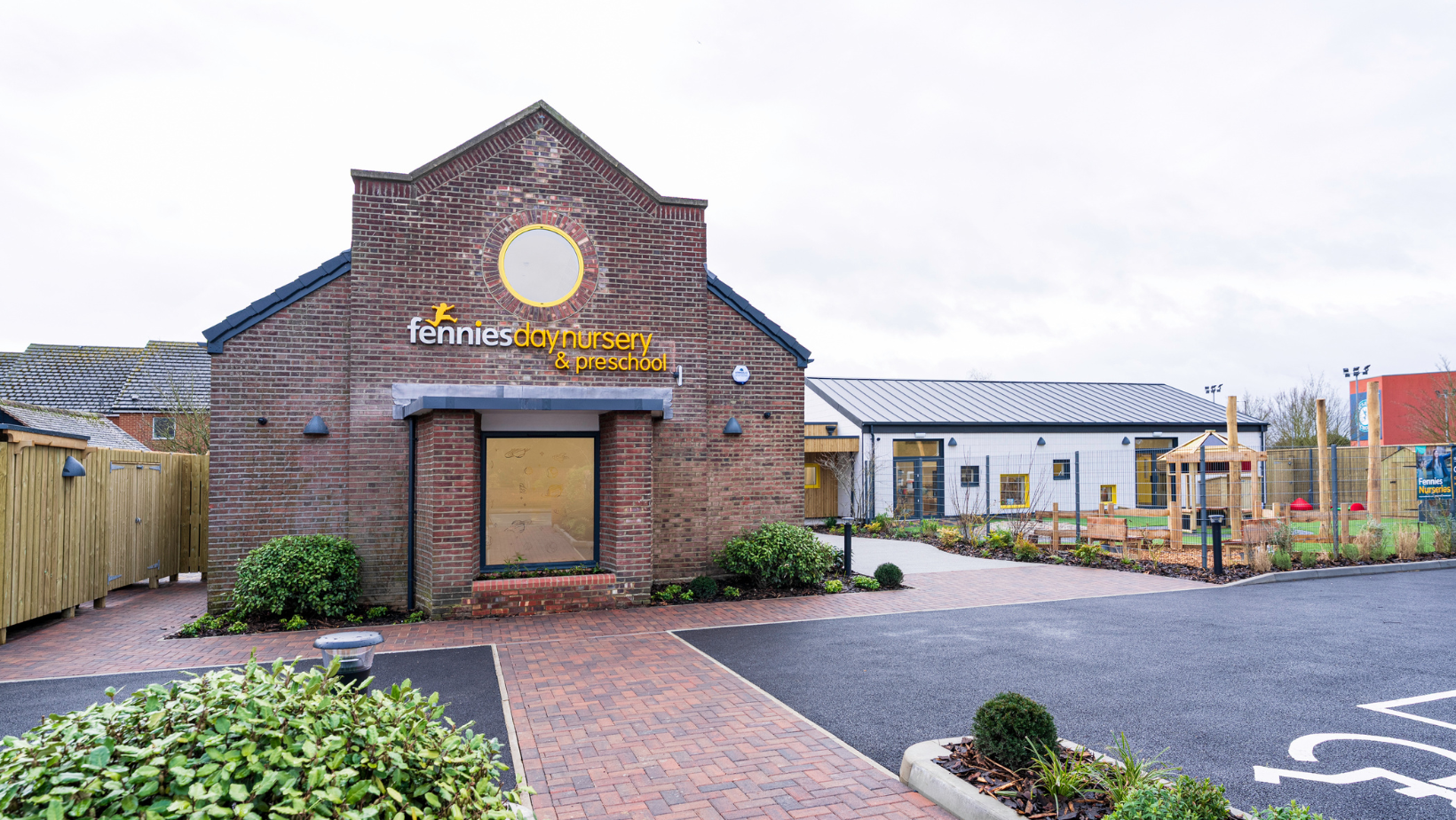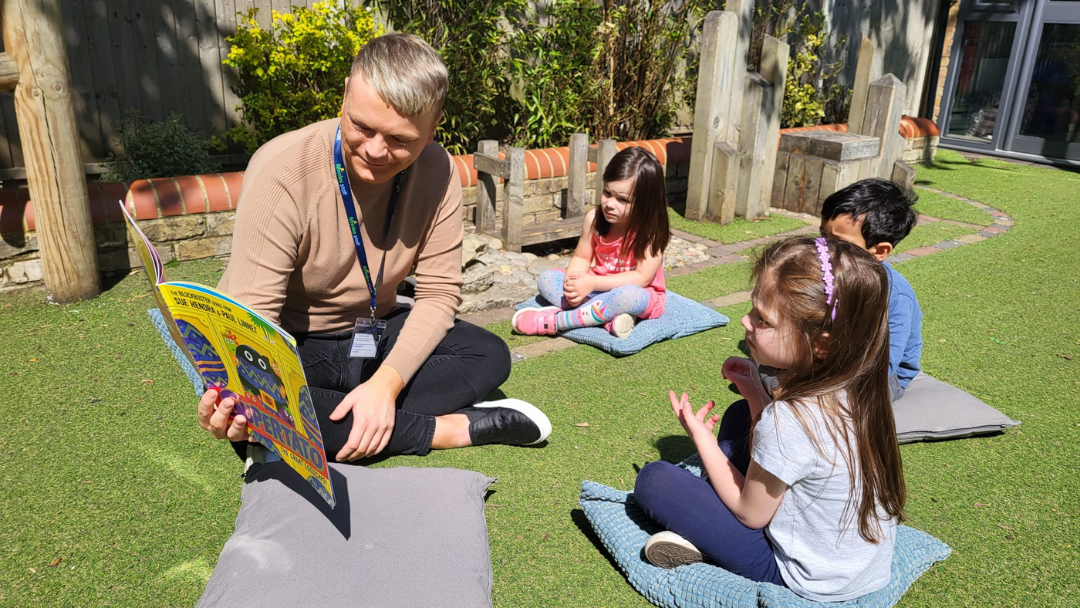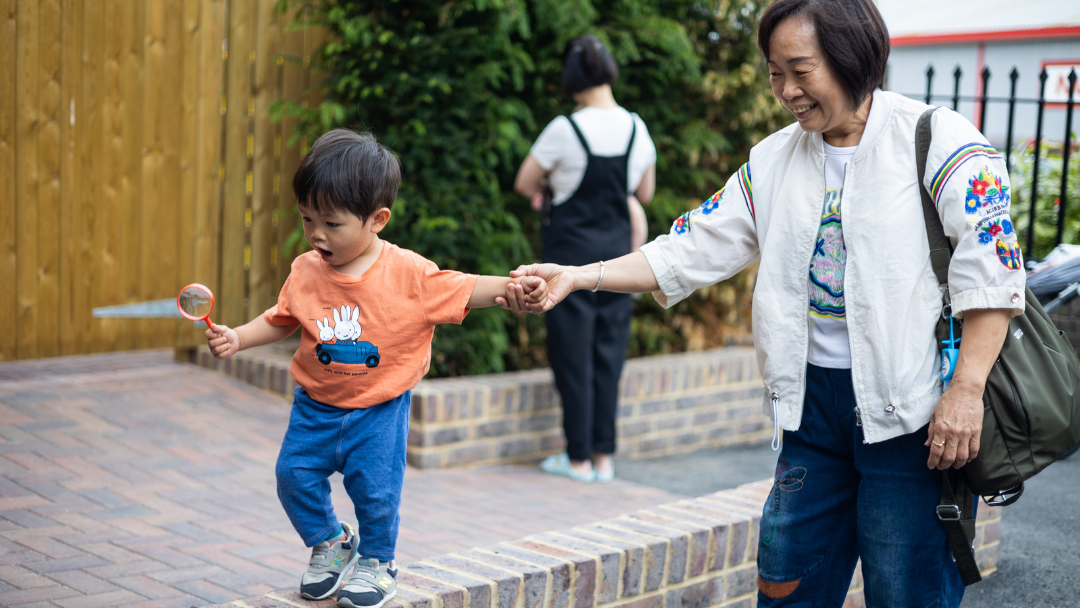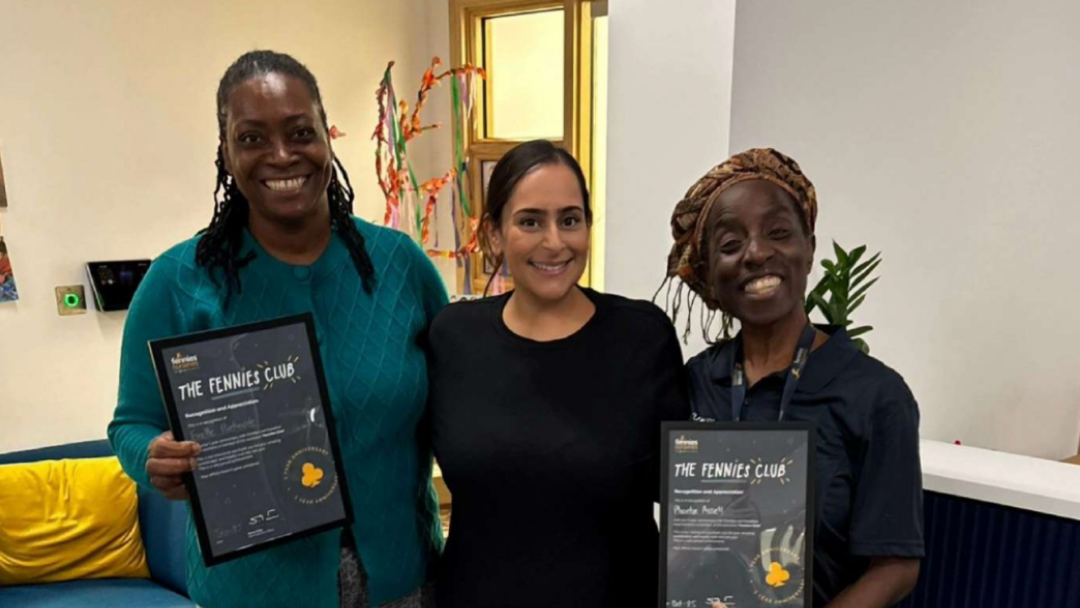The Benefits of Yoga & Mindfulness for Preschoolers
In today's fast-paced and technology-driven world, it's more important than ever to provide young children with the tools they need to navigate the challenges that lie ahead. That's where yoga and mindfulness come in. These practices, which have been around for centuries, offer a plethora of benefits for preschoolers. From enhancing physical fitness to boosting concentration and promoting emotional intelligence, incorporating yoga and mindfulness into the preschool curriculum can have a lasting positive impact on children's overall well-being.
- Understanding Yoga & Mindfulness
- Physical Benefits of Yoga for Preschoolers
- Cognitive Advantages of Mindfulness Practices
- Yoga & Mindfulness for Stress Management
- Incorporating Yoga and Mindfulness in Preschool Curriculum
- Conclusion
Understanding Yoga & Mindfulness
Before delving into the specific benefits, it's essential to have a clear understanding of what yoga and mindfulness entail.
- Yoga, in the context of preschoolers, focuses on gentle movements, poses, and breathing exercises that promote flexibility, balance, and body awareness.
- Mindfulness, on the other hand, involves being fully present in the moment and paying attention to one's thoughts and emotions without judgement.
Yoga and mindfulness are not only beneficial for physical health but also play a crucial role in supporting mental well-being. Through regular practice, children can learn to manage stress, improve concentration, and enhance their overall emotional resilience. These practices can also foster a sense of connection with oneself and others, promoting empathy and kindness.
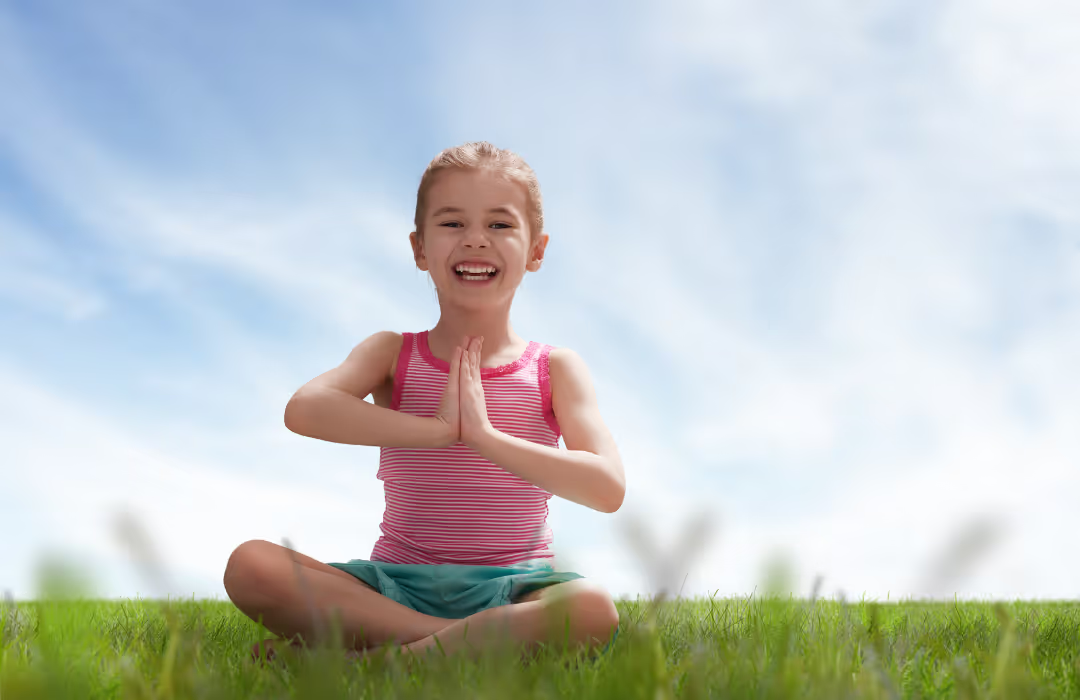
“Introducing yoga and mindfulness in early childhood support the development of emotional regulation, enhances concentration, and promotes overall wellbeing. At Fennies our educators understand these benefits and seamlessly integrate yoga to support all seven areas of children’s learning. By threading these sessions throughout the week, we ensure a holistic and enriching experience that supports both academic and personal growth.” - Rageena, Director of Early Years
Defining Yoga for Preschoolers
Yoga for preschoolers is tailored to their developmental needs and abilities. It incorporates age-appropriate poses that encourage creativity, imagination, and self-expression. These poses are often accompanied by storytelling, music, and games, which makes the practice engaging and fun for young children.
Furthermore, yoga for preschoolers helps them develop important motor skills such as coordination, balance, and strength. The practice also nurtures a sense of body awareness and helps children learn to respect and appreciate their bodies. By engaging in yoga at a young age, preschoolers can establish a foundation for a healthy and active lifestyle.
The Concept of Mindfulness in Early Childhood
Mindfulness in early childhood is about teaching children self-regulation skills, emotional awareness, and coping mechanisms. It involves activities such as deep breathing exercises, guided imagery, and sensory awareness. By introducing these practices at an early age, preschoolers can develop important skills that will benefit them throughout their lives.
Moreover, mindfulness practices in early childhood can help children build resilience and emotional intelligence. By learning to observe their thoughts and feelings without reacting impulsively, preschoolers can cultivate a sense of inner calm and self-control. These skills are invaluable in helping children navigate the ups and downs of life with grace and equanimity.
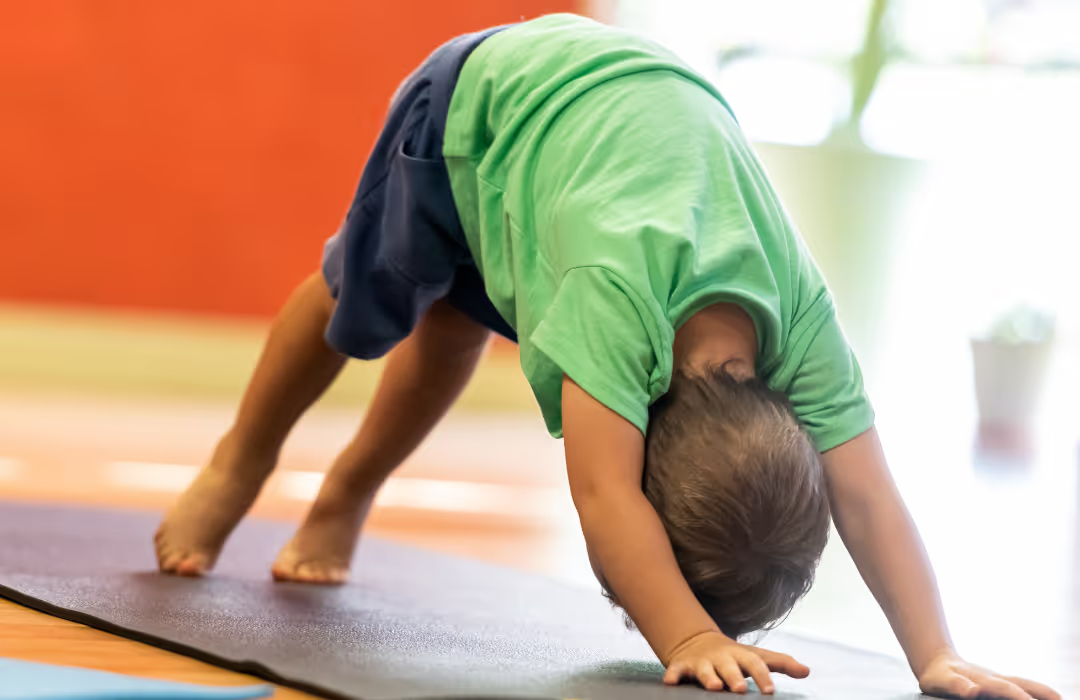
Physical Benefits of Yoga for Preschoolers
The physical benefits of yoga for preschoolers are numerous and far-reaching. These include enhancing motor skills and coordination, promoting physical fitness and flexibility, and improving body awareness.
Introducing preschoolers to yoga at an early age can have lasting effects on their physical development. By engaging in fun and interactive yoga poses, children can enhance their motor skills and coordination in a playful and engaging way. These movements require a level of focus and control that can help young ones become more aware of how their bodies move and function.
A recent study found that preschool children who participated in yoga significantly improved their motor abilities in just 12 weeks.
Enhancing Motor Skills & Coordination
Preschoolers engage in various yoga poses that require them to move different parts of their bodies simultaneously. This helps improve their coordination and motor skills while also strengthening their muscles. Additionally, the repetition of these movements fosters muscle memory, which can have a positive impact on overall physical development.
As children practise yoga poses that involve balancing, stretching, and twisting, they are not only improving their physical coordination but also honing their concentration and focus. These skills can translate into other areas of their lives, such as academic performance and social interactions, making yoga a holistic approach to early childhood development.
Promoting Physical Fitness & Flexibility
Yoga poses for preschoolers encourage physical activity and promote flexibility. Regular practice can help improve balance, posture, and muscle tone. Moreover, yoga provides an outlet for pent-up energy, aiding in preventing sedentary habits and supporting a healthy lifestyle.
By engaging in yoga, preschoolers can develop a sense of body awareness and learn to appreciate the importance of maintaining a healthy and active lifestyle. The gentle stretching and strengthening exercises in yoga can help prevent injuries and promote overall well-being in young children. Encouraging a love for movement and physical activity from a young age can set the foundation for a lifetime of health and wellness.
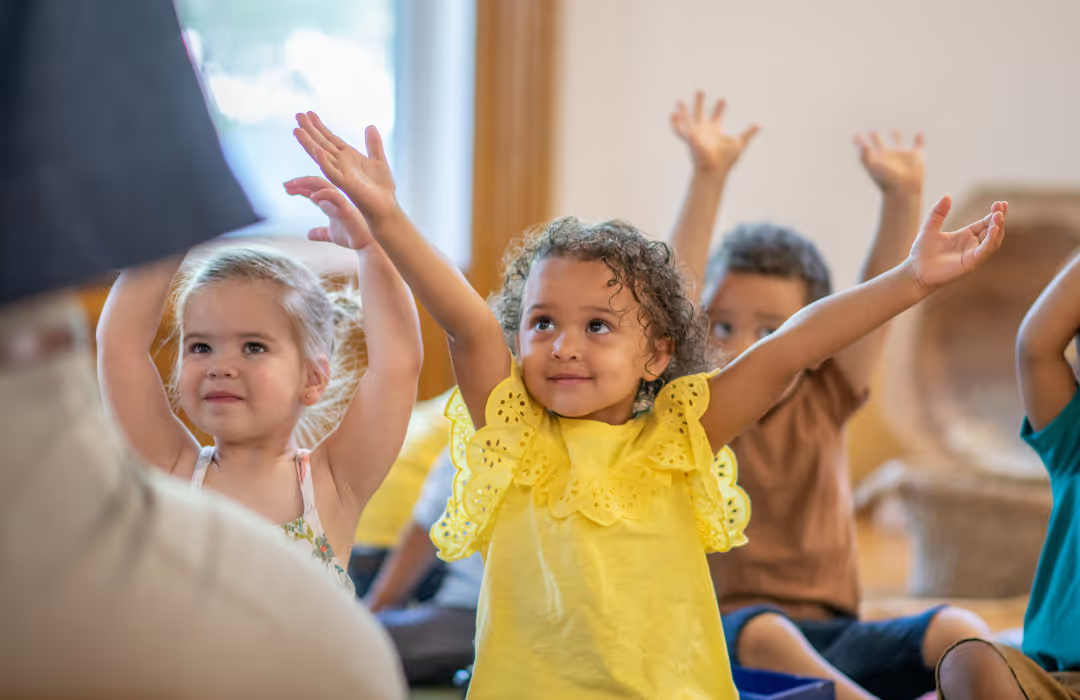
Cognitive Advantages of Mindfulness Practices
Mindfulness practices offer valuable cognitive advantages for preschoolers. These include boosting concentration and focus, encouraging emotional intelligence, and promoting self-regulation.
Boosting Concentration & Focus
Mindfulness practices, such as deep breathing exercises and guided imagery, help preschoolers develop the ability to concentrate and stay focused. These practices teach children to pay attention to the present moment, enhancing their ability to concentrate on tasks and reducing distractions.
Encouraging Emotional Intelligence
Mindfulness activities foster emotional intelligence in preschoolers by teaching them to recognise and regulate their emotions. Preschoolers learn to observe their feelings without judgement, fostering empathy and self-awareness. These skills have a lasting impact on their ability to manage relationships and navigate social interactions.
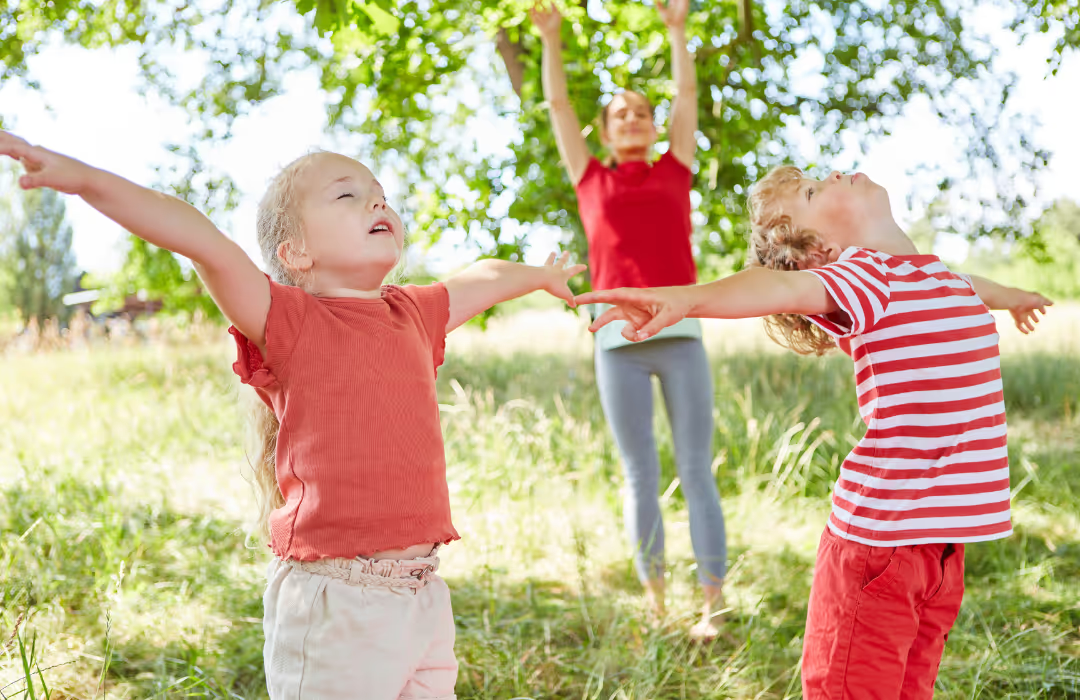
Yoga & Mindfulness for Stress Management
In today's fast-paced world, stress can affect children as much as it does adults. Yoga and mindfulness practices provide effective techniques for calming and relaxation, offering preschoolers invaluable tools for stress management.
Techniques for Calming and Relaxation
Yoga and mindfulness practices introduce preschoolers to various techniques for relaxation. Deep breathing exercises, progressive muscle relaxation, and guided imagery help children develop coping mechanisms to manage stress and promote a sense of calmness.
A recent survey whereby over half of respondents were yoga teachers for the under-5s found 99.7% of respondents said yoga has a positive impact on the children’s wellbeing, with 94% saying the children also loved taking part in the yoga classes.
Building Resilience in Preschoolers
By incorporating yoga and mindfulness into their daily routines, preschoolers learn to develop resilience. These practices teach children how to cope with challenging situations, regulate their emotions, and bounce back from adversity. This resilience carries forward into their future endeavours, helping them navigate life's ups and downs with greater ease.
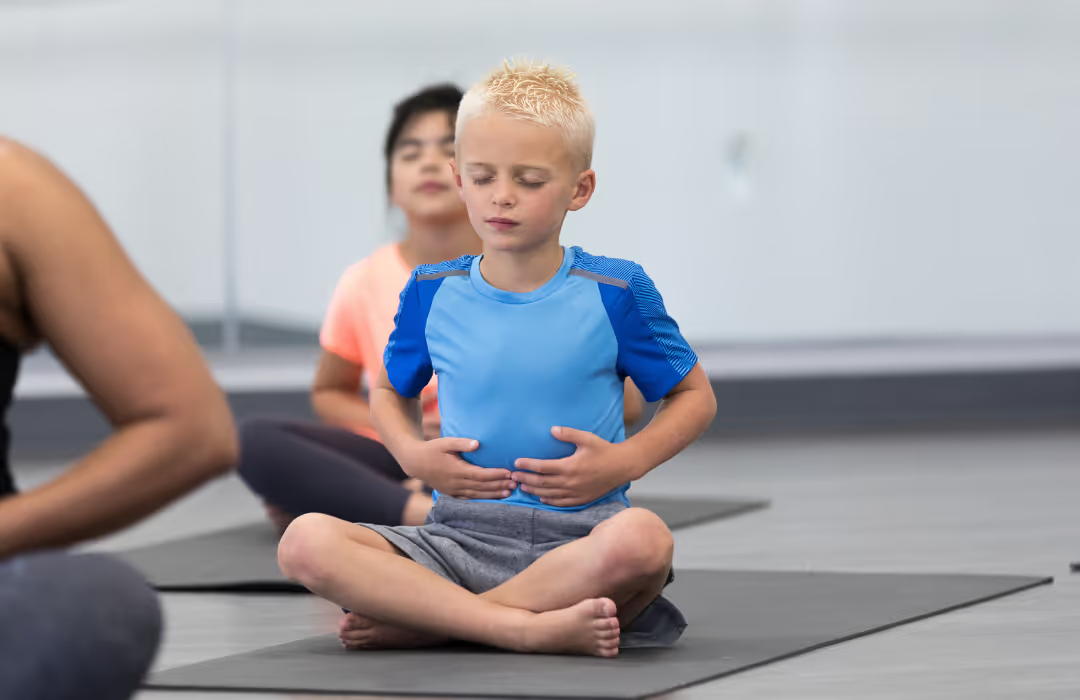
Incorporating Yoga & Mindfulness in Preschool Curriculum
The integration of yoga and mindfulness into the preschool curriculum can be seamless with the right strategies. By incorporating these practices into daily routines and activities, preschool and nursery teachers can create an environment that nurtures holistic development.
Strategies for Introducing Yoga in Classroom
Preschool teachers can introduce yoga by incorporating it into circle time or as a transition between activities. Simple, child-friendly poses and movements can be easily integrated into songs, stories, and games. By making yoga part of everyday classroom routines, children will naturally incorporate it into their play and learning experiences.
Mindfulness Activities Suitable for Preschoolers
Mindfulness activities for preschoolers can be integrated throughout the day. For example, teachers can guide children through relaxation exercises during nap time or promote mindfulness during snack time by encouraging children to eat mindfully and engage their senses. These activities provide opportunities for children to develop their attention and self-awareness skills.
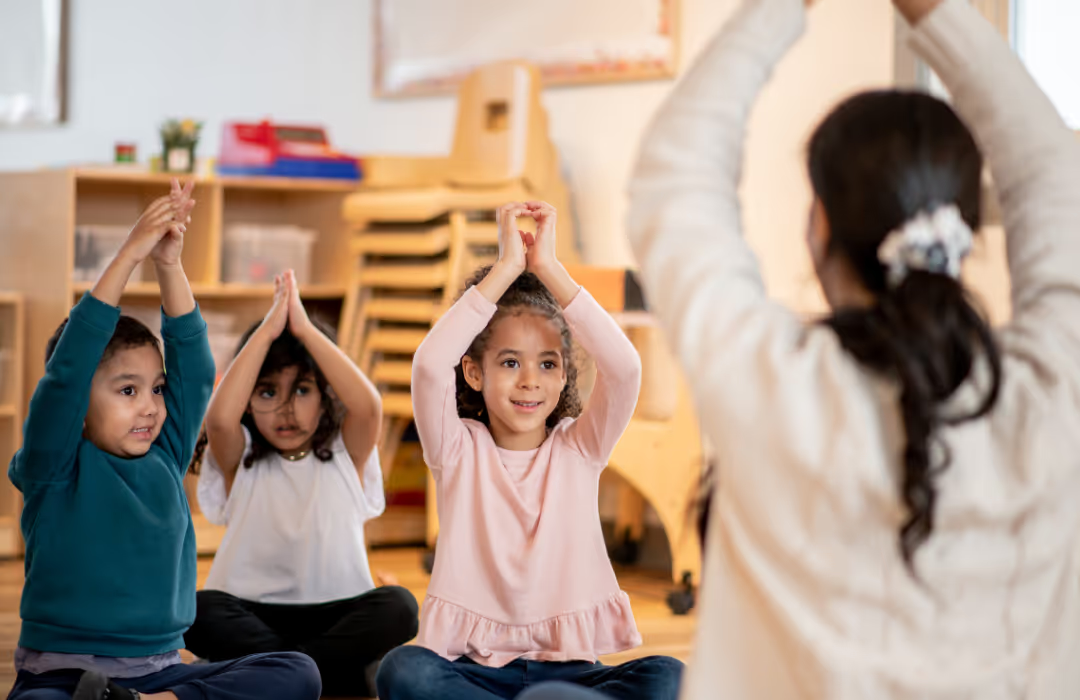
Conclusion
In conclusion, the benefits of yoga and mindfulness for preschoolers are vast and invaluable. By incorporating these practices into the preschool curriculum, children not only reap physical and cognitive advantages but also develop essential skills for emotional well-being, stress management and most importantly, have fun! It's therefore essential to embrace these practices to provide children with the tools they need to thrive in an increasingly complex world.
Find out more about what we get up to at Fennies by clicking here.
FAQ
Subscribe to our newsletter
Stay up to date with Fennies news

